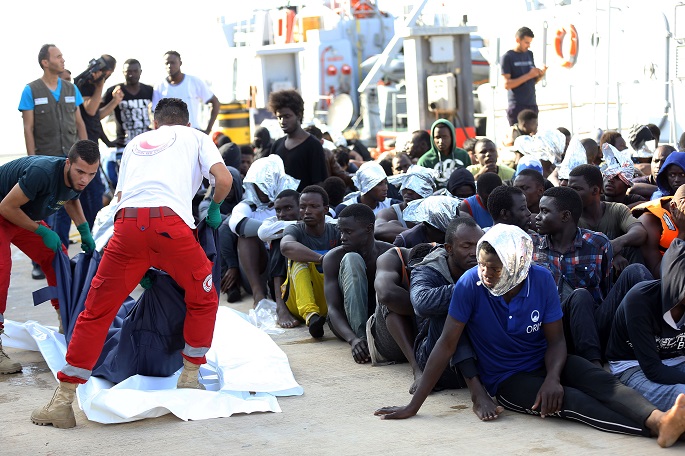"Unimaginable horrors" faced by refugees in Libya, beyond: UN
Published : 21 Dec 2018, 03:00
Migrants and refugees face "unimaginable horrors" from the time they enter Libya, throughout their stay in the country and, if they make it that far, during their ensuing attempts to cross the Mediterranean, a UN report released Thursday found.
The report, published jointly by the UN Support Mission in Libya (UNSMIL) and the UN Human Rights Office, covers 20 months up to August 2018.
It details "a terrible litany of violations and abuses" committed by a range of state officials, armed groups, smugglers and traffickers against migrants and refugees.
These include unlawful killings, torture, arbitrary detention, gang rape, slavery, forced labor, and extortion.
"The situation is utterly dreadful," said UN High Commissioner for Human Rights Michelle Bachelet, urging the tackling of "the rampant impunity" to end the suffering of tens of thousands of migrant and refugee women, men and children seeking a better life.
The report collated 1,300 first-hand accounts gathered by UN human rights staff in Libya itself, as well from migrants who have returned to Nigeria or managed to reach Italy. It traces the entire journey of migrants and refugees from Libya's southern border, across the desert to the northern coast.
The climate of lawlessness in Libya encourages thriving illicit activities, such as trafficking in human beings and criminal smuggling.
It leaves migrants and refugees "at the mercy of countless predators who view them as commodities to be exploited and extorted," the report said.
"The overwhelming majority of women and older teenage girls interviewed by UNSMIL reported gang rapes by smugglers or traffickers," it added.
UN staff visited 11 detention centers holding thousands of migrants and refugees and documented torture, ill-treatment, forced labor, and rape by the guards. They reported that women are often held in facilities without female guards, exacerbating the risk of sexual abuse and exploitation.


